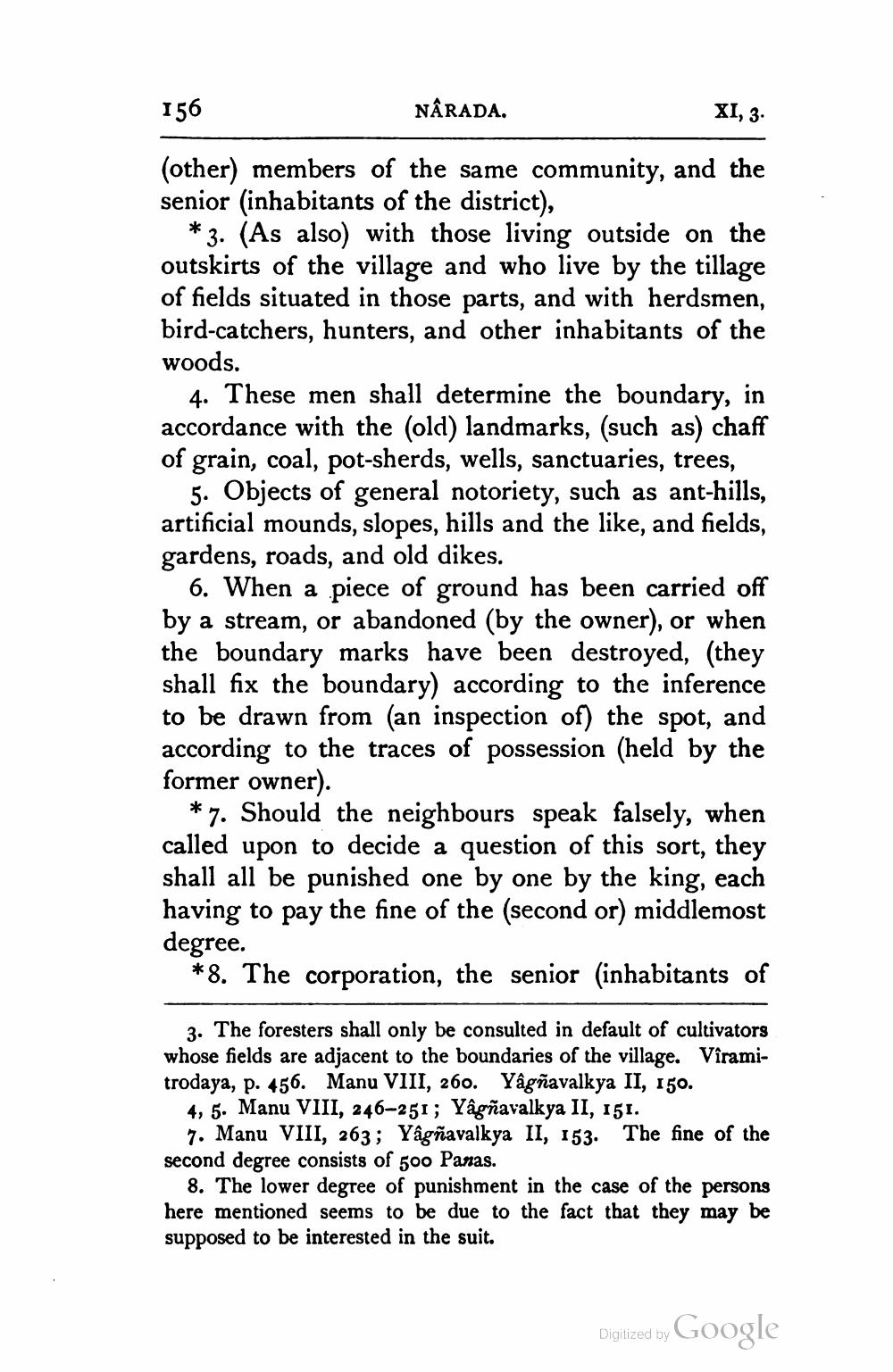________________
156
NÂRADA.
XI, 3.
(other) members of the same community, and the senior inhabitants of the district),
* 3. (As also) with those living outside on the outskirts of the village and who live by the tillage of fields situated in those parts, and with herdsmen, bird-catchers, hunters, and other inhabitants of the woods.
4. These men shall determine the boundary, in accordance with the (old) landmarks, (such as) chaff of grain, coal, pot-sherds, wells, sanctuaries, trees,
5. Objects of general notoriety, such as ant-hills, artificial mounds, slopes, hills and the like, and fields, gardens, roads, and old dikes.
6. When a piece of ground has been carried off by a stream, or abandoned (by the owner), or when the boundary marks have been destroyed, (they shall fix the boundary) according to the inference to be drawn from (an inspection of) the spot, and according to the traces of possession (held by the former owner).
*7. Should the neighbours speak falsely, when called upon to decide a question of this sort, they shall all be punished one by one by the king, each having to pay the fine of the (second or) middlemost degree.
*8. The corporation, the senior (inhabitants of
3. The foresters shall only be consulted in default of cultivators whose fields are adjacent to the boundaries of the village. Vîramitrodaya, p. 456. Manu VIII, 260. Yâgñavalkya II, 150.
4, 5. Manu VIII, 246-251; Yâgñavalkya II, 151.
7. Manu VIII, 263; Yagñavalkya II, 153. The fine of the second degree consists of 500 Panas.
8. The lower degree of punishment in the case of the persons here mentioned seems to be due to the fact that they may be supposed to be interested in the suit.
Digitized by Google




